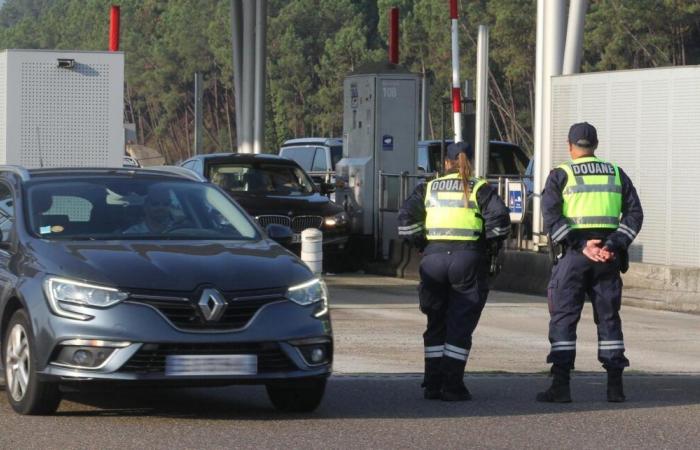The Rotterdam-Malaga journey stopped at the Castets tollbooth, on the A63. Tuesday October 22 at 2:50 p.m., Raquel Garrido (namesake of former MP La France insoumise), a Spanish-Dutch national born twenty-four years ago in the Batavian port city, was arrested at the wheel of a Renault Australe.
In the trunk of his rental vehicle, under the carpet and near the spare wheel, the Bayonne customs services, with the help of a dog, got their hands on 29 packets of 500 grams of heroin, or 14,590 kilos.
Six days later, this young mule “with a normal life”, a retirement home employee in Holland, was sentenced to four years in prison for importing, transporting and possessing narcotics by the Dax criminal court. She must also pay a customs fine of 260,000 euros (18,000 euros per kilo).
Several factors were taken into account by the Dax criminal court and its president Elisa Wegbecher: “a transnational affair”; a “very harmful product”; and Raquel Garrido’s “behavior over the past week.” A panel presented just before by the representative of the public prosecutor, who also specified that it was “the largest quantity of heroin processed by the Interregional Directorate of the Judicial Police of Bayonne for thirty years”. A file that is certainly “typical” for François Boutaud of Bayonne customs, but “unusual” according to the prosecution.
Deceptive collaboration
From the start, frightened, with reddened and moist eyes when she entered the small courtroom of the courthouse under police escort, Raquel Garrido suggested that she would collaborate more in court than during her hearings by the customs and the Bayonne judicial police.
The young woman, brunette and curly, with a nose piercing, finally drowned the fish. “She was not clear in her explanations,” admits her advisor Me Suhas. “What to question” for the president of the court, little sensitive to the portrait of “the naive and pressured victim” of a network – the mocro-maffia –, painted by the defense lawyer: “She had not knowledge of what she was carrying. »
Investigations report a car usher on October 22, associated with a telephone line called “K”, with whom Raquel Garrido communicated and shared her GPS coordinates throughout the journey. But also telephone links with a certain “Youssoufi”, known to be a drug extractor in the port of Rotterdam.
Did the young woman know that it was a heroin shipment? Was she threatened when she realized on the way, as she tried to explain, that it was not about cannabis? Was she already transporting drugs on a previous trip from the Netherlands to Spain last August?
Doubt persisted in several places, such as the lack of response from Raquel Garrido regarding the initiators of the convoy. The answers delivered from the trunk of the vehicle she was driving were, in any case, enough to send her to prison.






